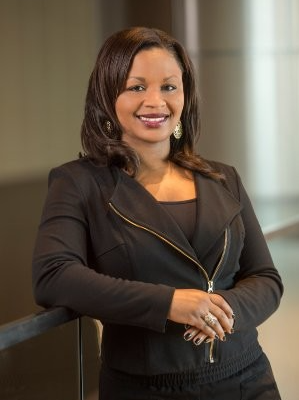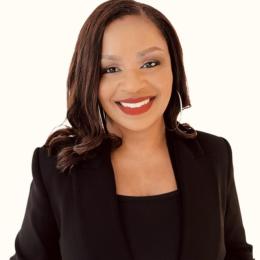Incoming ACC Chair Mike Madden talks with ACC Associate Vice President of Editorial Strategy Tiffani Alexander about his career, ACC, and plans for the future.


Tiffani Alexander: Tell us about your role as Head of Group Legal, Commercial & Procurement at Hyne Timber.
Mike Madden: Hyne Timber is one of Australia’s largest and most successful privately owned timber companies. Boasting a longstanding commitment to sustainably grown timber production and supply, they have an annual turnover of close to AU$500,000,000 and support over 700 employees across Australia and New Zealand.
I was approached to join Hyne Timber in 2017 as the first full-time in-house counsel and was tasked with establishing the legal function for the business.
Commencing in a purely legal capacity, my role has since expanded to include procurement, compliance, and more recently I’ve assumed responsibility for several commercial functions.
I now lead a team of three, and I really enjoy leading and supporting a team that is committed to driving those commercial outcomes for the business. It’s an old cliché, but no two days are the same and that’s one of the aspects I enjoy about the role.
It’s an old cliché, but no two days are the same and that’s one of the aspects I enjoy about the role.
Alexander: What led you to pursuing a career in law?
Madden: I originally studied a business degree, majoring in marketing and human resource management. From there I went into a graduate program with Hills Industries and undertook separate rotations across marketing and human resources (HR). With a highly unionized workforce, the HR rotation involved a lot of legal issues and working within that highly legalized context spurned an interest in the law.
Following that graduate program, I returned to university, this time as a law student. While studying, I was offered and accepted a full-time articles clerkship. I completed my law degree as a part-time student and having completed my articles, was admitted as a lawyer in Queensland, before I even attended my law school graduation.
My career really started to take shape when I accepted a role with the firm Dibbs Barker (now part of Dentons) and worked there for three years. I was fortunate to work for excellent partners who were not only exceptional lawyers, there were also tremendous people and fantastic mentors.
During my time there I was given the opportunity to work with a variety of clients across several different industries.
Alexander: Was there a pivotal moment when you decided you wanted to pursue an in-house role?
Madden: In 2008, one of the partners that I had worked alongside suggested that I’d be well suited to an in-house role. I remember taking that almost as a negative because in-house roles were viewed as something for people who couldn’t make partner.
However, the advice was offered with the best of intentions because he felt that I was very commercially astute and would enjoy working in broader commercial roles, something that was unlikely to happen if I stayed at the firm.
Not long after that suggestion, I was offered a three-month secondment with Telstra. I remember having a conversation on the Wednesday and the fronting up for my first day at Telstra the following Monday.
That secondment ended up lasting two years, and I had the opportunity to work as a commercial and contracts manager on one of Telstra’s largest accounts. I thoroughly enjoyed the commercial aspect of that time with Telstra, of actually being part of the business and of developing commercial solutions, as opposed to just legal solutions.
I thoroughly enjoyed the commercial aspect of that time with Telstra, of actually being part of the business and of developing commercial solutions, as opposed to just legal solutions.
In 2008, after almost two years of being on secondment, Telstra offered me a permanent role. Having spent that time at Telstra, I knew that I wanted to work in-house. However, as that offer from Telstra came through, I was offered the opportunity to serve as general counsel with Brisbane based technology company iseek Communications Pty Ltd (iseek).
I thoroughly enjoyed my time at iseek and will always be grateful for the opportunity they gave me to move in house and to serve as their first ever general counsel.
Alexander: You became an ACC member in 2010. Do you recall what it was that lead you to joining ACC all those years ago?
Madden: I became a member of the Australian Corporate Lawyers Association (ACLA) in 2010. Even though I’d had that in-house experience through that secondment at Telstra, I quickly came to the realization that nothing in private practice prepares you for the challenges of firstly, being a legal counsel, secondly, being a sole legal counsel, and thirdly, of establishing a legal function from scratch.
It was an online search that led me to ACLA because I was looking for some resources and to connect with other in-house counsel. Not long after joining ACLA, I rang them because while I could find plenty of resources for larger legal teams, I couldn’t find something I needed specific to a small legal function.
It was an ACLA staff member who suggested I join the local state committee and get involved in developing some of those resources that I felt were needed.
With that suggestion, I joined the local committee and am pleased to say I’ve been involved with the committee for over 10 years, and in that time, I’ve met some great people and made lifelong friends. This is one of the many great things about ACC membership. The opportunity to meet peers, connect, and expand your professional and support network is priceless!
This is one of the many great things about ACC membership. The opportunity to meet peers, connect, and expand your professional and support network is priceless!
In late 2013, I became vice president of the ACLA Queensland Division, and I was also lucky enough to be appointed to serve on the national board as a director representing my Queensland chapter.
I attended my first ACLA board meeting in Canberra in March 2014, and I still recall being warmly welcomed by Adrian Goss, the then-ACLA president who gave a very quick but extremely helpful introduction to the board and issues of the day.
Adrian is the incoming vice chair of the global ACC board. It’s remarkable to reflect on how these things start, but ultimately at the time, I have been fortunate to have the confidence and trust of my peers to serve on the chapter committee as vice president, president, and ultimately as a director on the ACLA national board.
Alexander: How did you come to join the global ACC board?
Madden: It was in late 2014 when ACLA was considering the merits of becoming a chapter of the ACC. As an ACLA board member, I sat on a committee that was tasked with exploring the possibilities of that partnership.
At the time I was going to the United States frequently for work, so I spent a considerable time getting to know ACC as an organization. In 2015 when ACLA became ACC Australia, the ACLA board was asked to nominate a board member for the global board, and I was fortunate to be nominated by the ACC Australia board members to join the ACC board for a three-year term.
Alexander: What does it mean to you to be elected president of the ACC board?
Madden: Serving on the ACC board has been an inspiring and thoroughly enjoyable experience. It’s been incredibly rewarding, particularly as I have had the opportunity to meet so many remarkable people and work alongside the many people who are committed to working for our members and the in-house community.
I remember walking into my first ACC Annual Meeting in Boston in 2015, at the start of my first three-year term as a board member and being blown away by the scale of Annual Meeting!
Serving on the ACC board has been an inspiring and thoroughly enjoyable experience.
I can't believe six years have passed since I first joined the global board. It truly humbling to have enjoyed the confidence and trust from my peers to serve as ACC treasurer, vice chair, and now board chair!
It's an honor to have the trust, confidence, and support of your peers, and I am very grateful for that and very much looking forward to working with the board and staff at ACC to meet the ongoing challenges of COVID-19 and continuing the great work by our immediate past chair Jo Anne Schwendinger.
Alexander: While you’re not the first Australian president of the ACC board, you are the first Australian-based president of the ACC board. Why do you think that’s significant and what does it say about ACC?
Madden: ACC has been a global association for a long time and we have board chair based in Canada, Europe, and more recently in the Middle East and now Australia. The fact that we can have board chairs and leadership who reside outside of the United States reaffirms the truly global nature of ACC!
It’s a great credit to ACC that over many years we’ve continued to recognize the benefit and advantage of having a diverse and inclusive board.
Our board today is very reflective of our global membership and that is incredibly significant and reaffirms ACC’s commitment to serve as the global in-house bar association representing the interest of our members in all parts of the globe through our advocacy and initiatives such as seat at the table.
Alexander: As the incoming ACC chair, what are your objectives in leading the board over the coming year?
Madden: I do want to acknowledge and thank our Immediate Past Chair Jo Anne Schwendinger. It has been such a privilege and pleasure to serve as Jo Anne’s vice chair.
I am personally very grateful for Jo Anne’s support and wise counsel during my board tenure. Jo Anne’s thoughtful, respectful, inclusive and decisive leadership has been critical in helping ACC navigate the last 18 months, which have been challenging for all of us due to the pandemic.
Jo Anne’s contributions to ACC have been tremendous and will leave a lasting legacy!
I certainly share ACC’s commitment to diversity and inclusion within our profession, and I look forward to continuing with the initiatives we’ve started in those areas and speaking out on those important topics when it’s appropriate to do so.
I certainly share ACC’s commitment to diversity and inclusion within our profession, and I look forward to continuing with the initiatives we’ve started in those areas and speaking out on those important topics when it’s appropriate to do so.
ACC needs to ensure we continue to deliver best in class services and meaningful support to our members.
Importantly, over the past 18 months we’ve had to pivot due to the pandemic and the challenges that presented. Veta T. Richardson and the ACC staff did a fantastic job in ensuring continuity of services to members including resources to help members navigate the challenges of the pandemic within their own organizations, and that work continues as we develop ACC’s Strategic Plan 3.0.
Finally, as board chair, a critical part of my role is to ensure ACC remains a viable organization with a long and successful future ahead of it.




